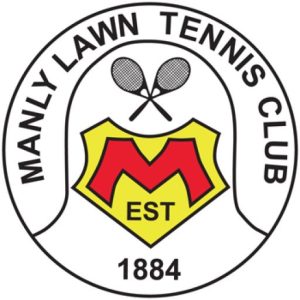Roger Federer Talks About Life After Tennis | WSJ
Roger Federer has yet to play pickleball.
“Never,” he said. “Never held the racket in my hand. You don’t have that stuff in Switzerland.”
As for tennis, the gentleman legend has closed the book. I met Federer Saturday in a small office on the ground level of the O2 Arena, where, the prior night, he’d played the final match of his career, a doubles loss alongside his rival turned pal, Rafael Nadal. Federer was still dressed in his blue Team Europe sweatsuit, but his competitive career was officially over, at age 41.
What did he feel when he woke up in the morning?
“A sense of happiness,” Federer said.
That post-match ceremony had been a heart-tugging weeper. By now you’ve surely seen the images: Federer in tears, sobbing at the microphone and alongside Laver Cup teammates and competitors, especially Nadal, who appeared overcome.
Nadal’s tearful reaction “hit deep,” Federer said. So had emotional responses and words from Andy Murray and Novak Djokovic.
“I’m happy I’m the first to go,” Federer said. “I know how I would have felt if Rafa had gone first, or Novak, or Andy. It would not be the same. Something would be missing.”
Federer’s retirement had been a closely-kept secret since late summer. A knee scan after Wimbledon proved to be concerning, and Federer faced a choice: yet another surgery and rehab, or moving on to his next chapter.
There was heartbreak, but he could get his mind around the latter. He’d never wanted to play into his mid-40s, a tennis Tom Brady. Time off recovering from prior injuries had foreshadowed his athletic afterlife.
“I’d had a glimpse,” Federer said, “and it wasn’t scary at all.”
He will remain busy. Federer has a range of business interests, a charitable foundation and of course, a family—he and his wife, Mirka, have two sets of twins, 13-year-old girls, Myla and Charlene, and 8-year-old boys, Lenny and Leo. Mornings in the Federer home in Switzerland remain “lively,” he said. “It’s always a question of how loud can the kiddies be from the beginning?”
As for tennis, he emphasized he did not want to become a “ghost.” Federer had spoken poignantly earlier in the week about Swedish idol Bjorn Borg’s estrangement from the sport after his retirement. The silver-maned Borg is now a Laver Cup captain, prominently returned, mixing it up once more. Federer is eager to maintain his own connection.
Could tennis ask for a better statesman? After Federer announced his retirement plan on Sept. 15, tributes poured in, praising Federer for his success, style and mien. He was tennis’s James Bond. Its Baryshnikov. Depending on whom you talked to—and tennis nuts will debate it until the end of time—he has a case as its GOAT, a virtuoso expression of accomplishment and aesthetic.
At the Laver Cup, he was surrounded by idols like Rocket Rod, now 84, and Stefan Edberg, as well as veterans who’d played him at his peak. Then there were the up-and-comers who’d worshiped him since they were youngsters—talents like the Americans Frances Tiafoe and Jack Sock, who would narrowly beat “Fedal” in a spirited match that went to a tiebreak decider.
Federer won 20 major titles, but when the pros talk, they talk about the way he won them—the unruffled manner in which Federer carried himself on and off the court.
“No one is bigger than the sport itself,” said Borg, “but what he did for the sport around the world? It’s amazing.”
He’s left an indelible mark. Would he consider coaching? Federer said there was no way he’d leave his family to go right back out on the road full-time. But he liked the idea of players visiting him for mini-sessions, like he did with Aussie coach Tony Roche in Sydney, tinkering with his game in Roche’s backyard court.
“I’d be open to something like that, especially with young players,” he said.
As for television commentating, he was curious, though he’s explored no formal plan. Networks would surely leap at the prospect of Fed in the booth, but there was a question: Could the sport’s most courteous diplomat be critical of his contemporaries?
“The point is to say how it is, and if it’s critical, it’s critical, but it isn’t personal,” Federer said. He added: “I’m not here to destroy players, I’m here to promote the game and make it better.”


